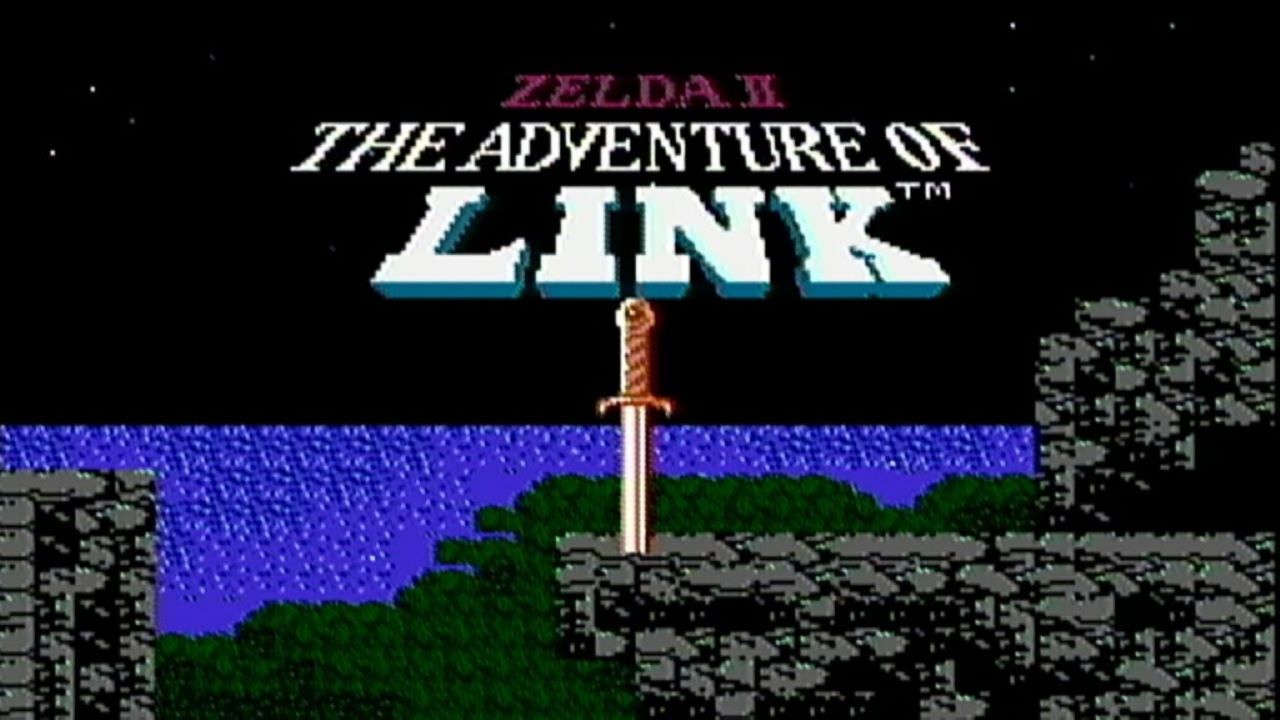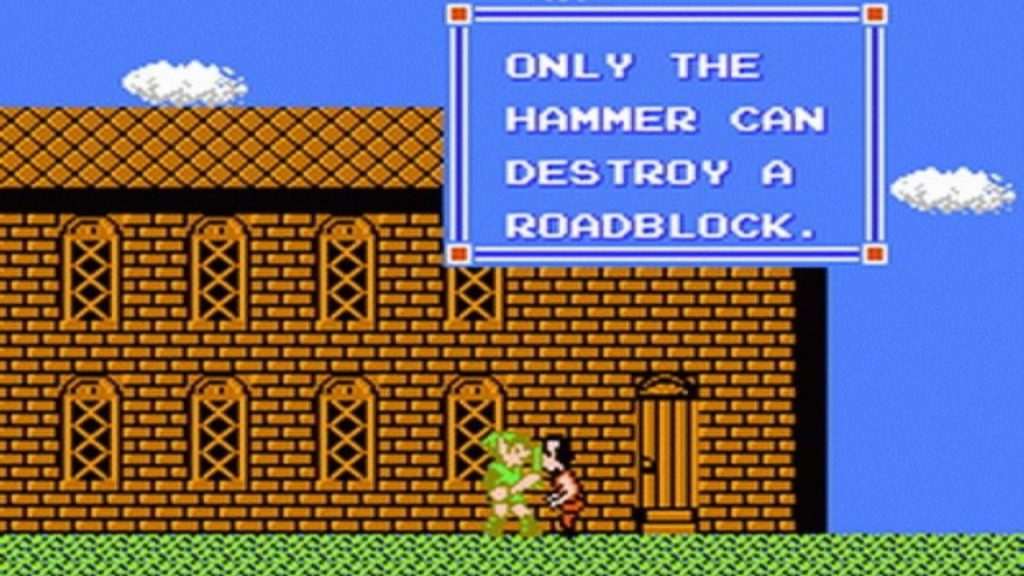In Defense of Zelda II: How to Enjoy Curmudgeonly Classics
Posted on January 08 2022 by Mike Midwood

This year’s Best Zelda Ever ranking taught me a few things about the perception of the games within my favorite franchise. It further confirmed the objective truth that Ocarina of Time should stand beside the harnessing of electricity among humanity’s greatest achievements, and it made me question how I can enjoy such camaraderie with people who would rank Skyward Sword that high. In seriousness, I really appreciate the insight this feature offered into other people’s unique values and perspectives regarding the Zelda series. I’m left again, however, with one nagging question. Why is Zelda II so disliked?
With the exception of 2019, when the DS games took a nosedive for some reason, Zelda II: The Adventure of Link has been the list’s lowest ranking “traditional” entry four out of the last five years. Managing only to eclipse bottom dwelling multiplayer games like Tri Force Heroes and Four Swords, the franchise’s sophomore outing is arguably it’s most despised effort. More than any other game, it is drawn through the mud of harsh criticism, while other lower-seeded Zelda’s are afforded a soft, courteous reproach.
I understand; it’s old, it’s archaic, it’s punishing, and unless you’re eligible for AARP it doesn’t care much about the sensibilities you’ve probably developed from modern gaming niceties. To be clear, my intent is not to argue that Zelda II is a profound masterpiece. I consider it a middling game in the series with its own set of undeniable flaws. My issue is less with the disapproval directed toward the game than the reasonings behind it. I want not only to address the most common complaints levied at The Adventure of Link, but to perhaps create a path toward appreciation for those who currently struggle to enjoy it. My hope is that I can convince somebody to give it a try, give it another try, or consider it in a new light.
ONLY THE HAMMER CAN DESTROY A ROADBLOCK.

More than anything else, Zelda II’s most maligned element is its extreme and punishing difficulty. Nobody but the most hardcore experts would dispute that The Adventure of Link is a ruthless game. I’ve been playing it pretty consistently for nearly twenty years and I still rely on the 3DS release’s save states to get through the final areas. I absolutely recommend taking advantage of this boon or the Switch’s rewind feature if those options are available. Making this point is important to me because I want to make it clear that I will not be positing a “git gud” argument.
While Zelda II’s difficulty is inarguable, criticisms of it are often peppered with terms like “cheap” or “unfair,” with a dash of frustration that a game over reverts the player to the North Palace. In these instances, I believe the critics are confusing unfairness with their own subjective distaste for the level of investment required to perform well and advance in the game. As far as I can tell, no damage source, pitfall, or negative outcome of any kind is unavoidable when exercising the requisite caution and dexterity. A frequently cited example of so-called cheapness is a scenario in which an enemy deals damage to Link, and the resulting knock-back animation sends him into a lava pit. Certainly, it doesn’t feel good when this happens, but this occurrence never transgresses the golden rules of action game design. These scenarios are always predictable and preventable. If they weren’t, completing the game would be impossible. Whether or not the player wants to play in a fashion that takes advantage of that predictability is a different — and I would argue the operative — point of question.
Another element of Zelda II that is often presented as a hindrance to enjoyment is the requirement of repeating content after losing all of one’s lives. People seem to view this as an unnecessary annoyance that harms the “flow” of gameplay. On the contrary, I would say that it’s an important part of that pacing. Unless you’re an absolute master, dying is part of Zelda II. Making your way back to the place of your defeat and forging a little further is the expected gameplay loop. This type of philosophy has had a renaissance lately, but it remains unique in the Zelda franchise. Imposing a penalty upon the player after death incentivizes careful, considered play, and encourages engagement with the core mechanics in a way other Zelda games just don’t.
EACH TOWN HAS A WISE MAN. LEARN FROM HIM.

Rather than simply defend Zelda II from common criticisms, I also want to praise its many amazing qualities. In terms of presentation, it’s an absolute slam dunk from the moment that one of the best title screens in video game history comes into view. Zelda II has one of the cleanest visual styles among its 2D peers and the soundtrack, while brief, is nothing but bangers from front to back. While most of the narrative is explained in the manual, it’s one of the more intriguing stories in the series, with unique character roles and important lore implications. Despite this, and the huge increase in NPCs from the original game, gameplay is almost never interrupted. Given the severe technological restraints, Zelda II is a pleasure for the senses.
Zelda II: The Adventure of Link has the best combat in the series. This is probably a controversial statement, but it shouldn’t be. Every other Zelda game, without exception, has extremely simplistic combat. That isn’t necessarily a problem; the 3D games in particular have tended to prioritize exploration over combat mechanics and accessibility over complexity. It makes sense that when trying to immerse the player in a world, shallow combat that gets the job done quickly and easily is preferable to rigorously honing your abilities and memorizing enemy behaviors. In Zelda II, though, combat is the main course. The point of playing The Adventure of Link is to improve at the skills the game requires for progression. Satisfaction derived from success is all the sweeter when that success was never guaranteed in the first place, and the diverse set of tactics the game allows you to employ mean there isn’t a dull moment along the way.
If nothing else, there’s value in being able to experience and enjoy a Zelda game as truly singular as The Adventure of Link. More than any other game in the franchise, it is one of a kind (insert “there’s a reason for that” joke here). Save a few screens from the Game Boy titles, it remains the series’ only primarily side-scrolling action game. You won’t find traditional experience points anywhere else in the series. For a franchise with so many recycled concepts, Zelda II has a plethora of abilities, spells, bosses, and iconography that would never reappear. This is one of the reasons I disagree with people who say that this game is dying for a remake. Any official remake of Zelda II would have to suit modern sensibilities, and then you wouldn’t have Zelda II anymore. You would just have a completely new game wearing the clothing of this classic. Nintendo should definitely do everything possible to keep The Adventure of Link available and continue to make it more accessible, but in the distinctive form that it has always existed.
IF ALL ELSE FAILS USE FIRE.

Consider the following a crash course on how to enjoy Zelda II: The Adventure of Link. Start by asking yourself if you even really care about enjoying it. If you don’t, I wouldn’t bother with it. Zelda II is a game you must want to have a good time with. This may seem counterintuitive at first; most games are designed to be immediately gratifying with little learning or development required of the player. Now, that’s totally fine. Games where you can just shut your brain off and immediately understand how to succeed can be a great time, but I’ve found that many of my favorite games don’t hand out their enjoyment on a silver platter. Games like the classic Resident Evil’s, Dark Souls, or Hollow Knight are purposefully designed to resist and penalize cavalier play and only became fun after I dedicated time and effort to developing my knowledge and skill. If I hadn’t been willing to endure the initial frustrations, I never would have come to love those games the way I do today.
If you can say to yourself, “Yes, I want to enjoy The Adventure of Link,” then there’s a certain mindset you must adopt before taking the plunge. Death will come quickly and often, far more often than triumphs. The key thing to remember is that failure is fleeting, but the successes stick and stack up. Don’t always try to advance in the game; keep fighting common enemies until you get a grip of their patterns and weaknesses. This is especially easy with save states and rewind on modern systems. Understand that progressing the story isn’t the only goal worth pursuing. It can be just as rewarding, maybe more so, to finally be able to defeat a Lizalfos without taking damage. These small victories will build over time and eventually make the main trunk of the game easier.
This is probably the hardest notion for a lot of modern players to grasp, but it’s the truth. You must practice Zelda II to enjoy it. You can’t just barrel through it, constantly making progress, in one unimpeded march to the credits. That is how most modern games work; the player moves from objective to objective rarely facing much resistance and constantly offered cudgels for when they do. I’m not saying one type of engagement is better than the other, but I do believe they are both valid. Some games are about consistently progressing through with a flowing pace. Some games are about mastering systems or mechanics and require you to stop and develop your skills. Rather than saying that one approach is “for you” and one isn’t, maybe we can learn to be more malleable and appreciate the other type of experience. Zelda II is a great game, but you must take the time to get to know it, and on its terms.
SORRY. I KNOW NOTHING.

A key caveat should be aired before concluding: People have busy, stressful lives and (hopefully) have better things to do than get marginally better at a 35-year-old game that nobody seems to like very much. The reason I said that you should ask yourself whether or not enjoying Zelda II matters to you is because it will take time, which is a finite resource. This article was written not just to defend a game I believe gets too much flak, but also to encourage a Zelda die-hard looking to expand their horizons, or a fan rebuffed by their infrequent experiences with The Adventure of Link. This title was made during a time when video games, the philosophy behind their development, and the expectations of the players were very different than what they are now. Regardless of your feelings on these concepts, attempting to appreciate Zelda II is a worthwhile endeavor. It would be a shame for such a classic to be lost to time, either because nobody puts in the effort to play it anymore, or because it is replaced in the collective consciousness with a watered-down remake.
Zelda II: The Adventure of Link isn’t a timeless masterpiece. It’s a strange deviation from Zelda standards both before and after. It’s brutally inhospitable to inexperienced players. It adheres to outmoded game design tropes that most people are glad to see left behind. All of these things are true. Zelda II is also the only game in the series with combat worth mastering. Contained within is one of the series’ best collections of music. Unique elements abound that never reappear in the series, and the narrative content is surprisingly robust for such an ancient title.
No matter your opinion on the game, one thing is inarguable: Zelda II stands alone. I think it deserves to stand a little higher.
What do you think of Zelda II: The Adventure of Link? Have you played it before? What systems have you played it on?
Mike Midwood is a writer for Zelda Dungeon. He loves video games, especially the Zelda, Resident Evil, and Dark Souls series. Mike also enjoys horror movies and books, football, and spicy foods.

Hi, I’m Mike Midwood and I’m a Senior Editor at ZeldaDungeon! Video games and literature are my greatest joys in life. An avid Zelda fan, some of my other favorite games include the Resident Evil and Dark Souls series. I hope you enjoy my content here on ZeldaDungeon!
“The sword has no strength unless the hand that holds it has courage.”



